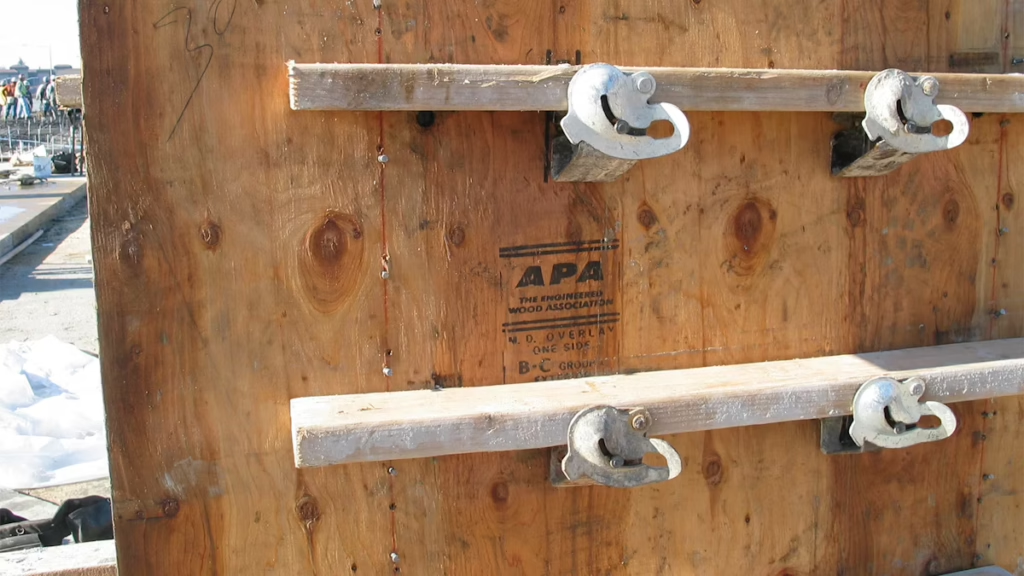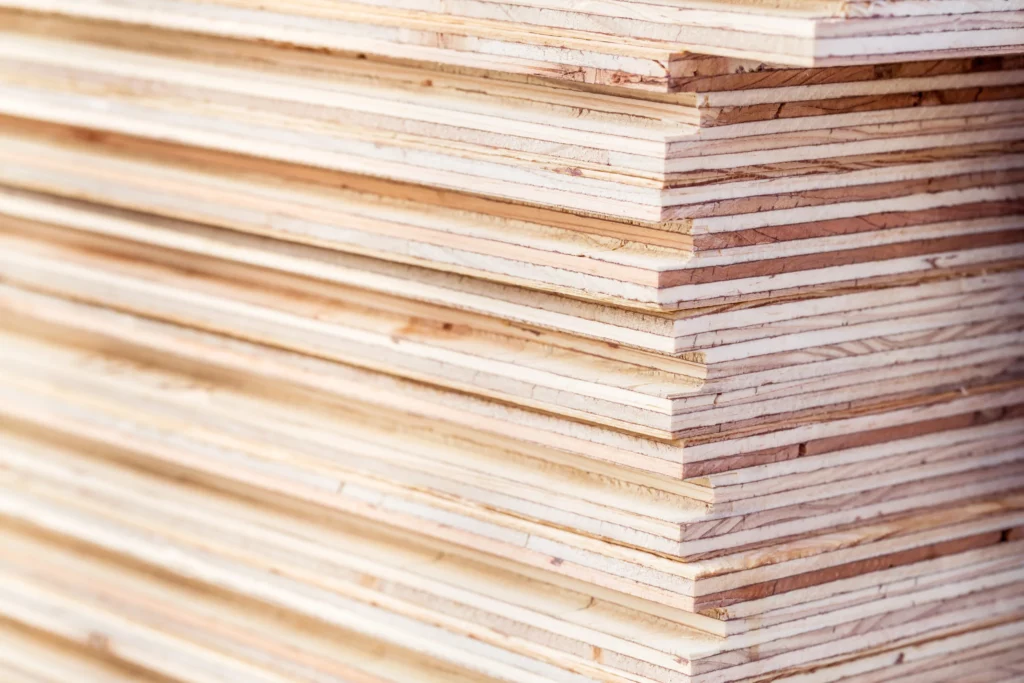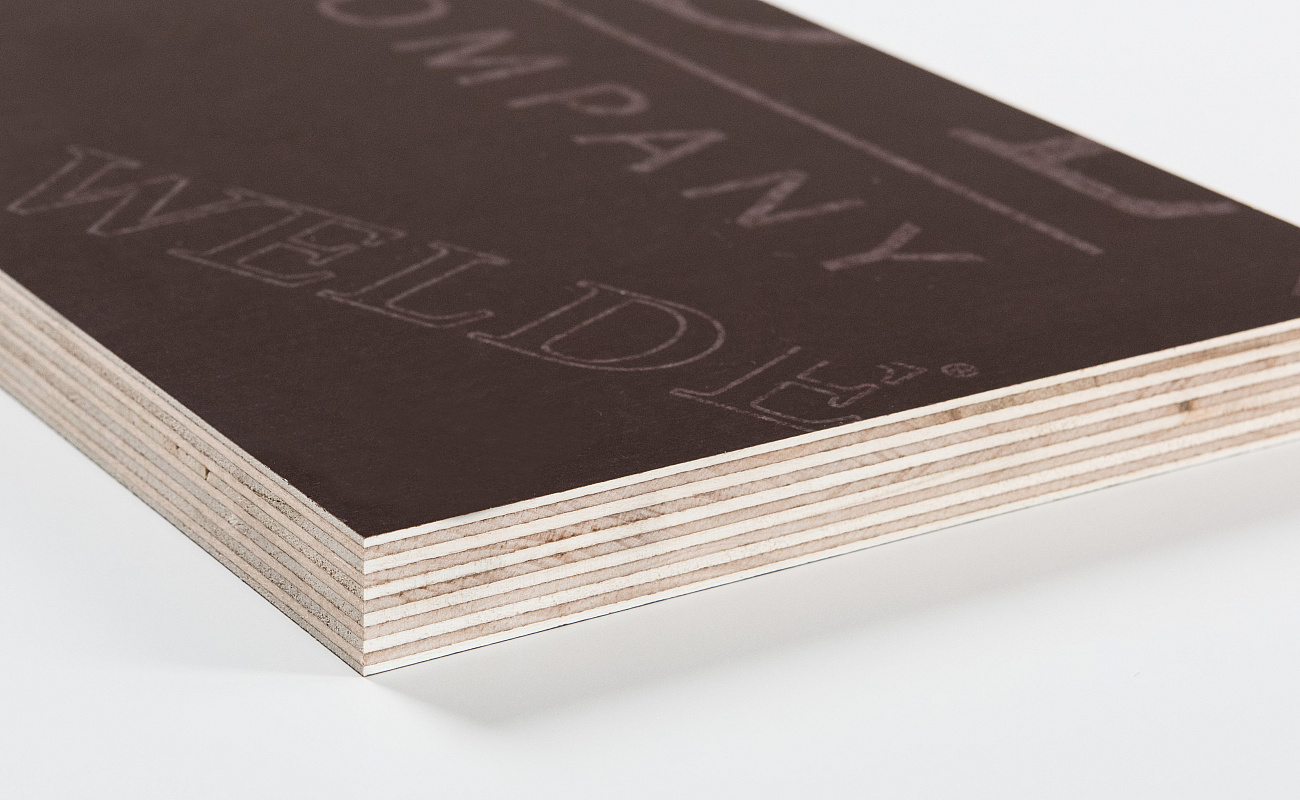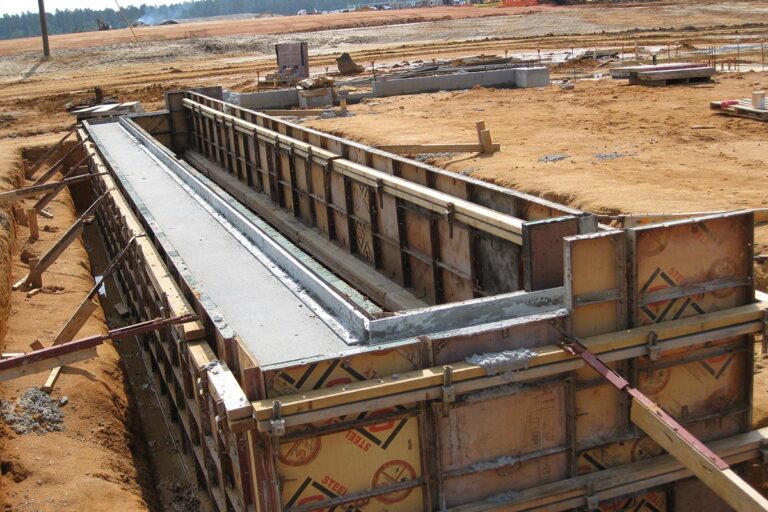Concrete Form Plywood: Choosing the Best Supplier
Concrete form plywood is an essential material used in the construction industry for creating temporary moulds or forms that hold concrete in place until it sets and hardens. Choosing the best supplier for concrete form plywood is crucial to ensure the success and quality of your construction projects. In this article, we will dive into the factors you need to consider when selecting a supplier and the importance of evaluating plywood quality, pricing, and supplier reputation. Let’s start by understanding what concrete form plywood is and its benefits.
Understanding Concrete Form Plywood
Concrete form plywood, also known as formply or shuttering plywood, is a specific type of plywood that is designed and manufactured for use in concrete formwork applications. It is typically made from strong and durable hardwood veneers, which are bonded together with waterproof adhesive.
Concrete form plywood is specifically engineered to withstand the pressures and forces applied during the pouring and curing of concrete. It provides a smooth and consistent surface for the concrete, ensuring a high-quality finish and preventing any leakage or deformations.
What is Concrete Form Plywood?
Concrete form plywood is a structural panel that serves as a temporary mold for concrete during the construction process. It is commonly used to build formwork for columns, walls, beams, slabs, and other structural components.
Unlike regular plywood, concrete form plywood is much stronger and more rigid to withstand the weight and pressure of the concrete. It is also designed to be easily removed from the hardened concrete, allowing for reusability and cost-effectiveness in construction projects.

Benefits of Using Concrete Form Plywood
Using concrete form plywood offers several advantages over alternative materials such as metal or plastic forms. Here are some key benefits:
- Durability: Concrete form plywood is highly durable and resistant to warping, bending, and cracking, making it ideal for multiple uses.
- Easy to Work With: It is lightweight, easy to handle, cut, and shape, reducing labor costs and installation time.
- Smooth Finish: The smooth surface of concrete form plywood ensures a high-quality finish on the concrete surface with minimal touch-ups required.
- Reusable: Quality concrete form plywood can be reused multiple times, making it an eco-friendly and cost-effective choice.
Furthermore, concrete form plywood offers excellent dimensional stability, meaning it maintains its shape and size even when exposed to moisture or extreme temperatures. This stability is crucial in ensuring the accuracy and integrity of the concrete formwork.
In addition to its durability, concrete form plywood also provides excellent resistance to chemicals commonly found in concrete, such as alkalies and acids. This resistance ensures that the plywood remains intact and unaffected by the chemical reactions that occur during the concrete curing process.
Moreover, concrete form plywood is designed with special edge treatments to prevent water absorption and swelling. This feature enhances its longevity and prevents the plywood from warping or deteriorating when exposed to moisture during the concrete pouring process.
Another noteworthy benefit of using concrete form plywood is its versatility. It can be easily cut and shaped to fit various formwork requirements, allowing for flexibility in design and construction. This versatility makes it suitable for a wide range of projects, from small residential structures to large-scale commercial buildings.
Overall, concrete form plywood is a reliable and efficient material for concrete formwork applications. Its strength, durability, ease of use, and reusability make it a preferred choice among construction professionals, ensuring the successful completion of projects with exceptional quality and cost-effectiveness. Read more about reliable at https://guides.libs.uga.edu/reliability
Factors to Consider When Choosing a Supplier
Now that we understand the importance of concrete form plywood, let’s explore the key factors you should consider when selecting a supplier:
When it comes to choosing a supplier for your construction project, the quality of plywood plays a crucial role in its success and durability. It is essential to assess the quality of plywood offered by different suppliers, ensuring that it meets industry standards and specifications. Consider factors such as the type of wood used, the manufacturing process employed, and any certifications that guarantee the plywood’s quality and performance.
Moreover, the sustainability of the plywood should also be taken into account. Look for suppliers who source their wood from responsibly managed forests and follow environmentally friendly practices in their manufacturing processes. Opting for sustainable plywood not only benefits the environment but also reflects positively on your project’s overall sustainability goals.
Quality of Plywood
The quality of plywood is paramount to the success and durability of your construction project. When evaluating suppliers, look for those who offer plywood that meets industry standards and specifications. Additionally, consider the type of wood used, the manufacturing process, and any certifications that ensure the plywood’s quality and performance.
Pricing and Value for Money
While cost is an important consideration, it should not be the sole determining factor. Evaluate the pricing structure of potential suppliers, taking into account the quality and durability of the plywood they provide. Look for suppliers who offer competitive pricing without compromising on the quality and performance of the plywood.
Supplier Reputation and Reliability
Working with a reputable and reliable supplier is crucial in ensuring timely deliveries and consistent quality. Research prospective suppliers’ reputation in the industry, their track record of customer satisfaction, and their ability to meet deadlines. A trustworthy supplier will have positive reviews, testimonials, and references from satisfied customers.
Evaluating Plywood Quality
When it comes to concrete form plywood, evaluating its quality is of utmost importance. Let’s examine two key factors that determine the plywood’s quality:
Plywood Grades and What They Mean
Concrete form plywood comes in different grades, each designated for specific applications and performance requirements. The grading system categorizes plywood based on factors such as veneer quality, bonding strength, and durability. It is essential to understand the different grades and select plywood that matches the demands of your construction project.
For example, Plywood Association of America (PAA) grading standards classify plywood into categories such as A, B, C, and D, with A being the highest quality and D being the lowest. Grade A plywood is free of any defects, while Grade D may have numerous knots and voids. Understanding these grades can help you choose the right plywood for your project, ensuring structural integrity and longevity. To read more about integrity click here.
Importance of Plywood Thickness and Dimensions
The thickness and dimensions of the plywood play a crucial role in determining its load-bearing capacity and overall performance. Thicker plywood typically offers higher strength and durability, while correct dimensions ensure a proper fit for your project’s specific formwork requirements.
Moreover, the thickness of plywood can impact its ability to resist bending or deflection under heavy loads. Thicker plywood panels are better suited for supporting heavier concrete pours without sagging or buckling. It is important to consider the span between supports and the weight the plywood will bear when selecting the appropriate thickness for your construction project.

The Role of Pricing in Supplier Selection
Pricing is an integral part of the supplier selection process. Let’s explore how it shapes your decision:
Understanding Plywood Pricing
Plywood prices can vary significantly based on factors such as quality, grade, dimensions, and market conditions. It is important to familiarize yourself with prevailing plywood prices in your region and compare supplier quotes to ensure a fair and competitive price.
When considering plywood pricing, it’s crucial to understand the impact of market fluctuations and global supply chain dynamics. Factors such as changes in raw material costs, transportation expenses, and demand-supply imbalances can all influence the final price of plywood products. Keeping abreast of these market trends can help you make informed decisions and negotiate effectively with suppliers.
Balancing Cost and Quality
While cost is a crucial consideration, it should not overshadow the need for quality plywood. Striking a balance between cost and quality is essential to ensure that you get the best value for your investment. Opting for the least expensive option may lead to subpar plywood that compromises the integrity and longevity of your construction project.
Moreover, focusing solely on upfront costs without considering long-term implications can be detrimental. Investing in high-quality plywood may incur a slightly higher cost initially, but it can result in savings in terms of durability, maintenance, and overall project success. By prioritizing both cost-effectiveness and quality, you can make a well-rounded decision that benefits your project in the long run.
Importance of Supplier Reputation
The reputation of a supplier can make a significant difference in the success of your construction project. Let’s explore why it matters:
When it comes to construction projects, the choice of supplier can impact the overall quality, timeline, and budget. A supplier with a strong reputation for reliability and consistency can ensure that your materials arrive on time and meet the necessary specifications, preventing delays and costly rework. On the other hand, a supplier with a poor reputation may lead to subpar materials, communication issues, and project setbacks.
Checking Supplier Credentials
Before finalizing a supplier, verify their credentials and industry certifications. Look for suppliers who adhere to quality standards, such as those certified by the International Organization for Standardization (ISO), ensuring that their products meet the required specifications.
Additionally, consider the supplier’s experience in the industry and their track record of delivering materials to construction sites. A supplier with a long history of successful projects and satisfied clients is more likely to provide reliable service and high-quality products.
Importance of Customer Reviews and Feedback
Customer reviews and feedback provide valuable insights into a supplier’s reliability, product quality, and customer service. Prioritize suppliers with positive testimonials and references from satisfied customers, as it indicates their commitment to delivering quality plywood and excellent customer support.
Furthermore, consider reaching out to other construction professionals or industry contacts for recommendations on reputable suppliers. Word-of-mouth referrals can offer valuable firsthand experiences and help you make an informed decision when selecting a supplier for your construction project.
Choosing the best supplier for concrete form plywood is a critical decision that should not be taken lightly. By considering factors such as quality, pricing, and supplier reputation, you can ensure that you receive high-quality plywood that meets your construction project’s requirements. Remember to evaluate plywood quality, balance cost and quality, and prioritize suppliers with a strong reputation for success in your construction endeavors.
Other resources: How to Use Plywood for Curved Concrete Forms


